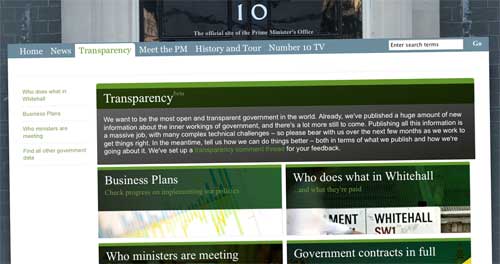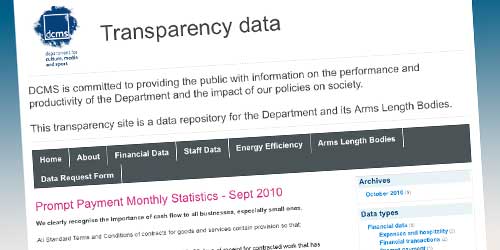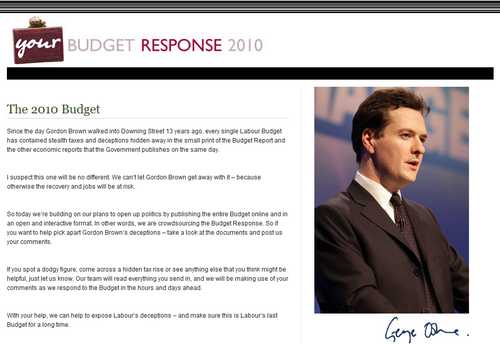
When is a new website not a new website? When it’s a subdomain, of course. Presumably that’s the justification for Downing Street launching a new transparency website, acting as a centralised depository for departments’ Business Plans (don’t call them ‘structural reform plans’, no matter what the URL says), org charts and meetings / hospitality data. In the last hour or so, it has taken its place in the Number10 site‘s primary navigation, replacing ‘Communicate’.
There’s a rather complex arrangement behind the scenes, by the look of it, with the more basic pages showing signs of being hand-coded in PHP, and the jQuery-rich Business Plans area being content-managed by a different application. It’s all running on Amazon hosting, so I’m guessing it might be bespoke PHP with Business Plan data sitting underneath in Amazon’s SimpleDB? But I’d be delighted if someone could enlighten me further. It certainly isn’t WordPress.
[blackbirdpie url=”http://twitter.com/mizansyed/status/1620114021556224″]
One disappointing aspect, though, is the use of Disqus for commenting. I continue to have serious reservations about government using a function which absolutely requires javascript – not just to submit a comment, but to read them too; and hosts its data at an overseas third party. As Neil Williams noted previously, it’s dead easy to lash it into any web page: but personally, I’d only ever want to use it as a last resort. I’m not sure Downing Street should be setting this kind of example.
[blackbirdpie url=”http://twitter.com/pubstrat/status/1622105846194176″]

 It’s a nice touch to see DCMS using a government-developed WordPress theme – namely, the
It’s a nice touch to see DCMS using a government-developed WordPress theme – namely, the 